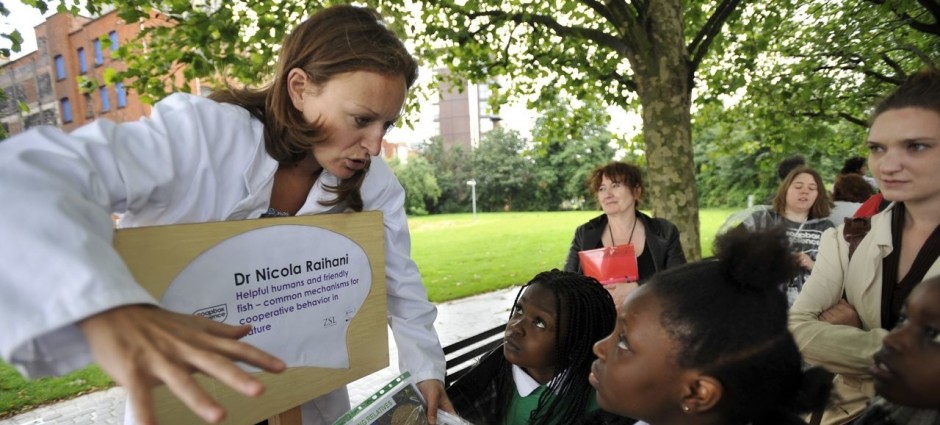 Raffaella Villa is a Senior Lecturer in biopress technology at Cranfield University. Raffaella is an applied microbiologist with particular expertise in microbial and enzymatic processes, which she has adapted to the waste and environmental sectors. She is leading national authority in anaerobic digestion science (making energy from waste). She will be talking about the role of microbes in anaerobic digestion for her talk on ‘Bugs: Friends or Foes?” at Milton Keynes on Saturday 9 July.
Raffaella Villa is a Senior Lecturer in biopress technology at Cranfield University. Raffaella is an applied microbiologist with particular expertise in microbial and enzymatic processes, which she has adapted to the waste and environmental sectors. She is leading national authority in anaerobic digestion science (making energy from waste). She will be talking about the role of microbes in anaerobic digestion for her talk on ‘Bugs: Friends or Foes?” at Milton Keynes on Saturday 9 July.
SS: Raffaella, how did you get to your current position?
RV: I came over to the UK 22 years ago on a research grant funded by the University of Milan to work on microbially-mediated chemical reactions at Exeter University. I had a great time, made lots of friends (some of which are professors in other UK universities) and I fell in love with the job…and my husband. I went back to Italy to study for my PhD but it was pretty clear that the only place where both of us could get an Academic job was the UK, so I came back with a Marie Curie fellowship to Stirling University. After a career break to raise two children, I returned to science in 2007 with a lectureship at Cranfield University.
SS: What, or who, inspired you to get a career in science?
RV: I’ve always been interested in science, since my first encounter with a chemistry set when I was 12 years old. When choosing my degree, I decided to study Food Science and Technology, which seemed to provide a good balance between chemistry, biology and physics, but very quickly I discovered that my real passion was microbiology. I was and still am fascinated by the variety of processes that can be delivered by these amazing organisms.
SS: What is the most fascinating aspect of your research/work?
RV: The variety of research, even if I’ve been working in the same area for over 20 years, every project is different from the previous one. I love to see my research applied to the real world and the idea that I can contribute towards making a difference… and I have the pleasure of travelling and meeting very talented people from all over the world.
SS: What attracted you to Soapbox Science in the first place?
RV: I love talking to people and I love my job so the soapbox science event looked like the perfect combination of the two. I like the idea of talking to adults and children about science in an informal way and I hope I will prove to be a good role model for young girls.
SS: If you could change one thing about the scientific culture right now, what would it be?
RV: Science can sometimes be a little nepotistic and occasionally hierarchical. We all started somewhere and novelty often originates from people outside of well-known networks. I think we should be prepared to take a few more risks to be truly innovative.
SS: What would be your top recommendation to a female PhD student considering pursuing a career in academia?
RV: Science is for everyone but the traditional academic career path is shaped to suit men. We need to create a more diverse range of acceptable career paths which enable future generations of female scientists to be successful at the highest levels, whilst also achieving other life goals.
